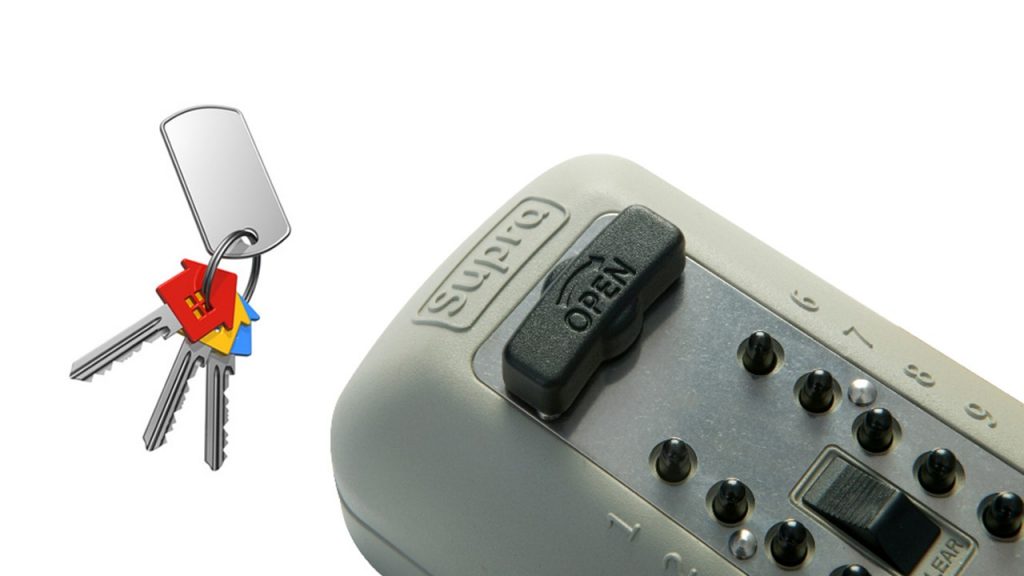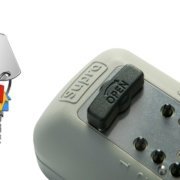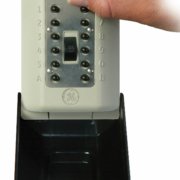 Are you guilty of hiding the key to your holiday home under the mat or plant pot? There is another way of keeping your holiday home secure!
Are you guilty of hiding the key to your holiday home under the mat or plant pot? There is another way of keeping your holiday home secure!
Whether your visitors are just ten minutes or a few days away from arrival, placing your holiday home keys in an insecure place like this can be risky and potentially make your cottage a target for opportunist thieves.
According to a study by LV (Liverpool Victoria), 19% of people admitted to leaving the keys to their property under a plant pot. And if that’s not daunting enough, police figures show that more than 6,000 homes burglaries in a single year were as a result of thieves using keys!
But is there a viable alternative when guests are coming and going on a regular basis? The good news is yes, there is, and it comes in the form of a key safe.
Before you go ahead and install one, here are some key things to consider….
A mechanical key safe approved by the police
One of the UK’s leading producers of key safes, the Key Safe Company, has created the first-ever mechanical key safe to achieve UK police approval.
The Supra C500 has been subject to vigorous testing and as a result, is the only type of key safe to receive the LPS 1175 Level 1 certificate, making it an accepted form of security by many insurance companies.
Please visit keysafe.co.uk/ to find out more about the Supra C500.
Where should it be installed?
Key safes should be located on an exterior wall, concealed where possible, but not hidden to the point your visitors can’t find it when they arrive (be sure to include instructions and information as to the whereabouts of the safe within your pre-holiday communications).
Use a specialist locksmith or professional installer to install your key safe to ensure it’s secure and effective.
If you’re installing your own, be aware that it must be fixed into brick or dense concrete rather than breezeblock or soft mortar.
Regularly update your key safe codes
There’s little point in having a key safe if you never change the code. It’s good practice that periodically you, your housekeeper or cleaner is tasked with doing this, potentially between changeovers.
Remember you’ll always need to let your next guest know the code before they arrive!
Protect yourself
If your holiday home is due to be unoccupied for a lengthy period of time it makes sense to arrange for the keys to be removed from the safe. Leaving them for prolonged periods could be a security risk in itself.
Am I covered?
An important question to check is ‘am I protected by my insurers?’
Although many insurance companies are now accepting the use of key safes within their policies, some may have certain fitting conditions, combination code requirements, etc.
Always check to make sure you’re covered before investing in and installing a key safe.
Talk to an expert
For more information about key safes we highly recommend you talk to a specialist locksmith or reputable company such as Key Safe.
It’s not practical to expect your holiday home guests to keep your holiday home secure in the same manner that you would, they may not lock every window whilst they go out for the day so look for a holiday home insurance policy such as that offered by Boshers that does not require evidence of forceful of violent entry in the event of a theft claim. At Boshers we understand that key safes are in common use at holiday homes, whist we expect you to take care in the manner which you use an operate a key safe at your holiday home our policy does not have any specific conditions specifying how they’re used.
If you have any questions or queries regarding the insurance cover you have in place or if you require a quotation from a specialist for your holiday home insurance please give one of our experienced team a call on 01237 429444.
This holiday home security article has been created as generic guidance for holiday home, cottage and holiday cottage complex owners and does not constitute security or insurance advice. If you have any questions relating to holiday home security and the prevention of thefts at your holiday cottage you should take advice.


